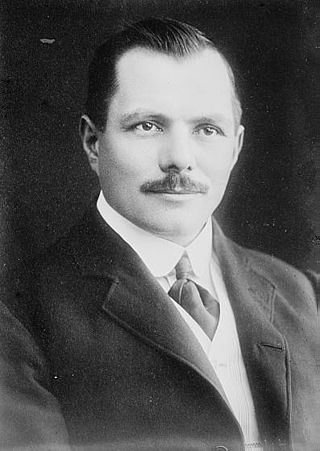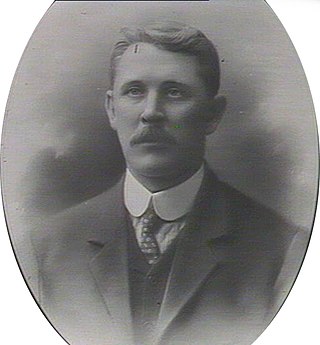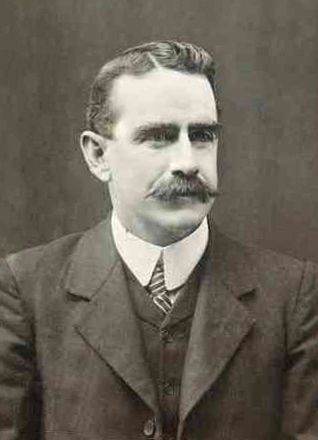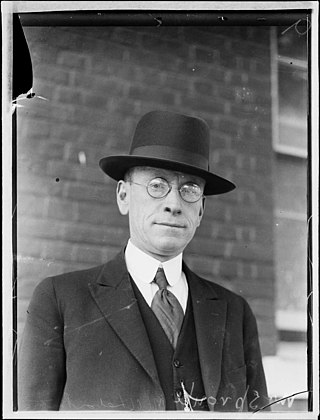Related Research Articles

Sir John William Downer, KCMG, KC was an Australian politician who served two terms as Premier of South Australia, from 1885 to 1887 and again from 1892 to 1893. He later entered federal politics and served as a Senator for South Australia from 1901 to 1903. He was the first of four Australian politicians from the Downer family dynasty.

The Australian Institute of Architects is the professional body for architects in Australia. The post-nominals of FRAIA (Fellow) and RAIA continue to be used. The Institute supports 14,000 members across Australia, including 550 Australian members who are based in architectural roles across 40 countries outside Australia. SONA is the national student-membership body of the Australian Institute of Architects.

John Norton was an English-born Australian journalist, editor and member of the New South Wales Parliament. He was a writer and newspaper proprietor best known for his Sydney newspaper Truth. Norton was arguably one of Australia's most controversial public figures ever.

James Benjamin Sharpe was an Australian politician. He was an Australian Labor Party member of the Australian House of Representatives from 1913 to 1917, representing the electorate of Oxley

Cranbrook is a large house built at Rose Bay in Sydney, New South Wales, Australia. Built in 1859 as a private residence, the house was used as an official residence for the Governor of New South Wales and Governor-General of Australia, it is now comprises part of Cranbrook School.

Hugh Donald "Huge Deal" McIntosh was an Australian theatrical entrepreneur, sporting promoter and newspaper proprietor

James Ashton was an Australian politician.

Major-General James Alexander Kenneth Mackay,, usually known as Kenneth Mackay, was an Australian soldier and politician.

The Holman ministry , first Holman ministry or Holman Labor ministry was the 35th ministry of the New South Wales Government, and was led by the 19th Premier, William Holman.
William Haslam was a small businessman and politician in the Colony of South Australia.

William Joseph Denny, was a South Australian journalist, lawyer, politician and decorated soldier who held the South Australian House of Assembly seats of West Adelaide from 1900 to 1902 and then Adelaide from 1902 to 1905 and again from 1906 to 1933. After an unsuccessful candidacy as a United Labor Party (ULP) member in 1899, he was elected as an "independent liberal" in a by-election in 1900. He was re-elected in 1902, but defeated in 1905. The following year, he was elected as a ULP candidate, and retained his seat for that party until 1931. Along with the rest of the cabinet, he was ejected from the Australian Labor Party in 1931, and was a member of the Parliamentary Labor Party until his electoral defeat at the hands of a Lang Labor Party candidate in 1933.
Frederick Hannaford was a farmer and politician in the British colony of South Australia.
Thomas Douglas Percy Holden was an Australian politician who served as a Member of the New South Wales Legislative Council from 1912 to 1934 and also as an Alderman and Mayor of the Municipality of Redfern. The owner of a tobacconist and barber shop in Redfern, Holden spent most of his career associated with the Australian Labor Party.

Robert Sproule was an Irish-born Australian public servant and politician who served as Solicitor General for New South Wales from 1920 until 1922.
Henry Lamshed was a farmer and politician in colonial South Australia.
Members of the New South Wales Legislative Council who served from 1910 to 1913 were appointed for life by the Governor on the advice of the Premier. This list includes members between the election on 14 October 1910 and the election on 6 December 1913. The President was Sir Francis Suttor. Hall appointed, Taylor appointed, Ross died, Hughes died, Hall resigned, </ref></ref>

Charles Gilbert Heydon was an Australian politician and judge.
Maxwell Hamilton Osbiston was an Australian actor, active in radio, stage, film and television.
Gordon Tidy was a journalist in Australia before returning to England as a minister of religion, among other occupations. His friendships included with poets Will H. Ogilvie (1869–1963), A. B. 'Banjo' Paterson (1864–1941), Arthur Bayldon (1865–1958), and Henry Lawson (1867–1922), and war historian Charles E. W. Bean (1879–1968).
References
- ↑ "Dinner to Mr J F Harvey ex MLA". The Sydney Morning Herald . 6 September 1898. p. 5. Retrieved 6 May 2015– via Trove.
- ↑ "Mr James Frederick Harvey". Former members of the Parliament of New South Wales . Retrieved 9 April 2019.
- ↑ "Personal". The Sunday Times . Sydney. 30 January 1898. p. 7. Retrieved 6 May 2015– via Trove.